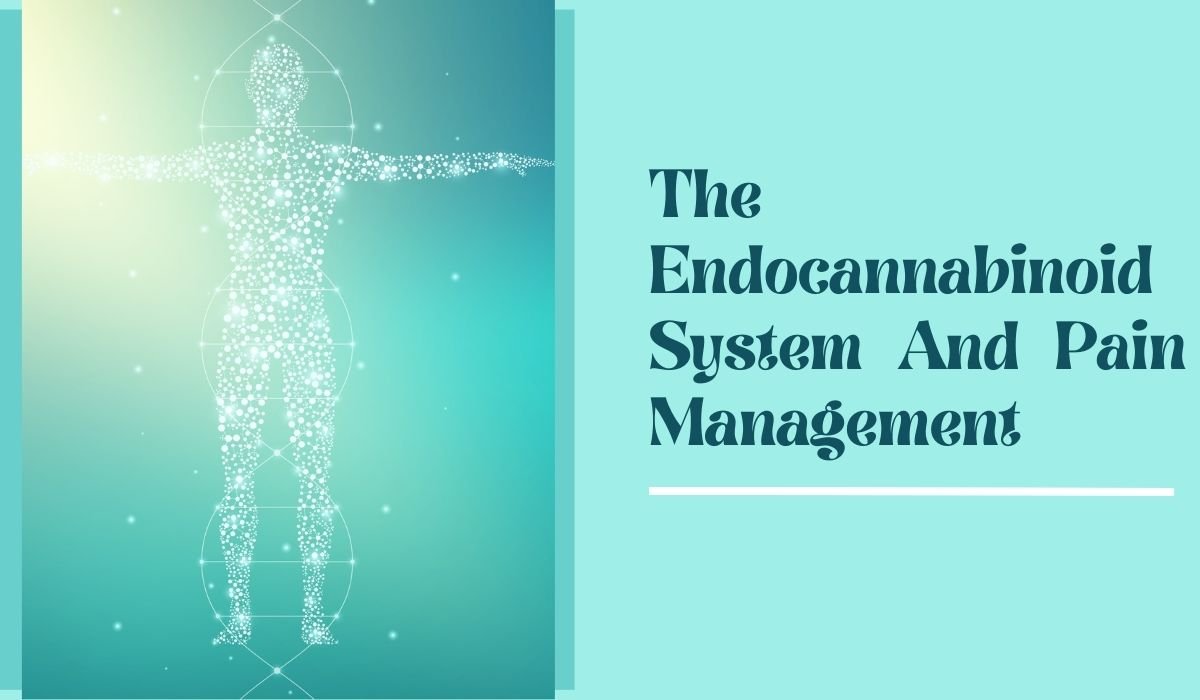The Endocannabinoid System And Pain Management: An Overview!

The endocannabinoid system is a complex cell signaling network made by the body. The term is also known as endogenous cannabinoids. It is the most important physiologic system that maintains human health. It is made up of internally produced endocannabinoids and receptors, and they are maintaining homeostasis within your body.
Endocannabinoids and their receptors are found in the brain, glands, connective tissues, and organs. As aforementioned, The signaling network comprises a combination of endocannabinoids, enzymes, and cannabinoid receptors to help to regulate different bodily functions which are vital for good health and well-being. The main purpose of this system is to control and balance key bodily functions.
Do Endocannabinoids Increase Pain?
The system was discovered in the 1990s by scientists while exploring THC, a type of cannabinoid. Cannabinoids (CBD) are the chemical compounds found in the cannabis sativa plant. Scientists found that ECS has a vital role in the central nervous system and immune systems. They showed some of the bodily functions of the endocannabinoid system, including:
- Emotional processing
- Memory
- Eating
- Inflammatory and immune responses
- Pain control
- Sleep
- Learning and memory
- Bone growth
- Reproduction and fertility
- Appetite
- Liver function
- Muscle formation
You can increase the level of the endocannabinoid system by doing natural activities, such as exercising, doing yoga, eating foods, and consuming exogenous plant cannabinoids. Delta-9 tetrahydrocannabinol (THC) and cannabidiol (CBD) are the main exogenous cannabinoids that help to upregulate the system. A moderate level of endocannabinoids enhances bodily functions and helps to maintain balance.
What are the components of ECS?

Endocannabinoid receptors
Endocannabinoids bind to the receptors and transmit the signal to ECS needs to take action. The action depends on which endocannabinoid it binds and where the receptor is located. The main receptors are,
- CB1 receptors- This type of receptor is mostly found in the central nervous system (CNS)
- CB2 receptors- This type of receptor is mostly found in the peripheral nervous system.
Enzymes
The component quickly destroys endocannabinoids once they are used. The enzymes are beneficial to distinguish endocannabinoids from other molecular signals (hormones, classical neurotransmitters) in the body. The two types of enzymes are,
- FAAH- The enzyme breaks down anandamide
- MAGL- The enzyme breaks down 2-AG
Role of the endocannabinoid in pain management
ECS comprises natural cannabinoids, called endocannabinoids. The activation of endocannabinoids eradicates inflammatory and neuropathic pain. The regulation of pain sensation works through the functioning of receptors and affects the nervous system. The receptors are found in each nerve tissue all over the body. However, it is mainly focused on the brain. When a condition, such as chronic pain, injury, muscle sclerosis, or infection disrupts the body’s balance, the endocannabinoid system helps to restore the body’s homeostasis.

Therapeutic uses of cannabinoids?
Sometimes, Your body may lack performance and support. In such situations, you need cannabidiol(CBD) to break down natural cannabinoids by modulating receptors in our bodies. Cannabidiol is a compound of the cannabis sativa plant that is used as a supplement to control the levels of endocannabinoids and their deficiency, which can cause sleep issues, pain, inflammation, memory problems, and many more.
The active compounds in cannabis, such as CBD and THC bind to the endocannabinoid receptors CB-1 and CB-2 and relieve chronic pain, neuropathic pain, nociceptive pain, and acute pain. The cannabinoid is not only good for pain management but also for treating neurological diseases, such as stroke, seizures, traumatic brain injury, Parkinson’s disease, etc. When it comes to psychiatric disorders, endocannabinoids provide relief from anxiety disorders, personality disorders, bipolar disorder, anorexia nervosa, atherosclerosis, and many more.
What is endocannabinoid deficiency?
Endocannabinoid deficiency is a condition of lower-level endocannabinoids in the body. It may also happen due to the lack of its natural endocannabinoids on a daily basis. Currently, this is not approved as a medical condition. The dysfunction of endocannabinoids may increase the risk of developing certain conditions such as migraine, irritable bowel syndrome, and fibromyalgia.
Conclusion
The endocannabinoid system plays an important role in pain management. It helps to regulate several body functions also. But due to a lack of scientific studies, we don’t know more about this complex network functioning in the human body. However, it could eventually get the priority to treat several conditions.
Dr. Edward Zelman
Dr. Edward Zelman is a distinguished and highly respected medical professional who has dedicated his career to the field of general medicine. With a profound commitment to patient care and a wealth of knowledge acquired over decades of practice, Dr. Zelman has earned a reputation as a trusted healthcare provider in his community. With a career defined by excellence and an unwavering commitment to the betterment of his patients and the broader community, Dr. Edward Zelman stands as a pillar of the medical field, dedicated to the principles of healing and compassionate care. At present, Dr. Edward Zelman is researching safe and effective natural remedies that can restore as well as maintain the youthful functioning of the body.
View All By Dr. Edward






